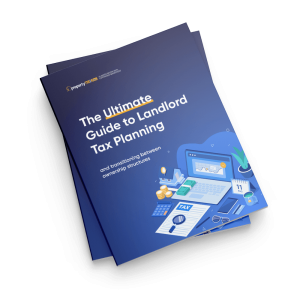Privacy Policy
BACKGROUND:
Property118 Ltd understands that your privacy is important to you and that you care about how your personal data is used and shared online. We respect and value the privacy of everyone who visits this website,
www.property118.com (“Our Site”) and will only collect and use personal data in ways that are described here, and in a manner that is consistent with Our obligations and your rights under the law.
Please read this Privacy Policy carefully and ensure that you understand it. Your acceptance of Our Privacy Policy is deemed to occur upon your first use of Our Site
. If you do not accept and agree with this Privacy Policy, you must stop using Our Site immediately.
- Definitions and Interpretation
In this Policy the following terms shall have the following meanings:
| “Account” |
means an account required to access and/or use certain areas and features of Our Site; |
| “Cookie” |
means a small text file placed on your computer or device by Our Site when you visit certain parts of Our Site and/or when you use certain features of Our Site. Details of the Cookies used by Our Site are set out in section 13, below; |
| “Cookie Law” |
means the relevant parts of the Privacy and Electronic Communications (EC Directive) Regulations 2003; |
| “personal data” |
means any and all data that relates to an identifiable person who can be directly or indirectly identified from that data. In this case, it means personal data that you give to Us via Our Site. This definition shall, where applicable, incorporate the definitions provided in the EU Regulation 2016/679 – the General Data Protection Regulation (“GDPR”); and |
| “We/Us/Our” |
Means Property118 Ltd , a limited company registered in England under company number 10295964, whose registered address is 1st Floor, Woburn House, 84 St Benedicts Street, Norwich, NR2 4AB. |
- Information About Us
- Our Site is owned and operated by Property118 Ltd, a limited company registered in England under company number 10295964, whose registered address is 1st Floor, Woburn House, 84 St Benedicts Street, Norwich, NR2 4AB.
- Our VAT number is 990 0332 34.
- Our Data Protection Officer is Neil Patterson, and can be contacted by email at npatterson@property118.com, by telephone on 01603 489118, or by post at 1st Floor, Woburn House, 84 St Benedicts Street, Norwich, NR2 4AB.
- What Does This Policy Cover?
This Privacy Policy applies only to your use of Our Site. Our Site may contain links to other websites. Please note that We have no control over how your data is collected, stored, or used by other websites and We advise you to check the privacy policies of any such websites before providing any data to them.
- Your Rights
- As a data subject, you have the following rights under the GDPR, which this Policy and Our use of personal data have been designed to uphold:
- The right to be informed about Our collection and use of personal data;
- The right of access to the personal data We hold about you (see section 12);
- The right to rectification if any personal data We hold about you is inaccurate or incomplete (please contact Us using the details in section 14);
- The right to be forgotten – i.e. the right to ask Us to delete any personal data We hold about you (We only hold your personal data for a limited time, as explained in section 6 but if you would like Us to delete it sooner, please contact Us using the details in section 14);
- The right to restrict (i.e. prevent) the processing of your personal data;
- The right to data portability (obtaining a copy of your personal data to re-use with another service or organisation);
- The right to object to Us using your personal data for particular purposes; and
- If you have any cause for complaint about Our use of your personal data, please contact Us using the details provided in section 14 and We will do Our best to solve the problem for you. If We are unable to help, you also have the right to lodge a complaint with the UK’s supervisory authority, the Information Commissioner’s Office.
- For further information about your rights, please contact the Information Commissioner’s Office or your local Citizens Advice Bureau.
- What Data Do We Collect?
Depending upon your use of Our Site, We may collect some or all of the following personal data (please also see section 13 on Our use of Cookies and similar technologies):
- Name;
- Date of birth;
- Address and post code;
- Business/company name and trading status;
- Number of properties owned;
- Accountants details;
- Contact information such as email addresses and telephone numbers;
- Proof of residence and ID;
- Financial information such as income and tax status;
- Landlords insurance renewal dates;
- Property Portfolio details such as value and mortgage outstanding;
- How Do We Use Your Data?
- All personal data is processed and stored securely, for no longer than is necessary in light of the reason(s) for which it was first collected. We will comply with Our obligations and safeguard your rights under the GDPR at all times. For more details on security see section 7, below.
- Our use of your personal data will always have a lawful basis, either because it is necessary for our performance of a contract with you, because you have consented to our use of your personal data (e.g. by subscribing to emails), or because it is in our legitimate interests. Specifically, we may use your data for the following purposes:
- Providing and managing your access to Our Site;
- Supplying our products and or services to you (please note that We require your personal data in order to enter into a contract with you);
- Personalising and tailoring our products and or services for you;
- Replying to emails from you;
- Supplying you with emails that you have opted into (you may unsubscribe or opt-out at any time by the unsubscribe link at the bottom of all emails;
- Analysing your use of our site and gathering feedback to enable us to continually improve our site and your user experience;
- Provide information to our partner service and product suppliers at your request.
- With your permission and/or where permitted by law, We may also use your data for marketing purposes which may include contacting you by email and or telephone with information, news and offers on our products and or We will not, however, send you any unsolicited marketing or spam and will take all reasonable steps to ensure that We fully protect your rights and comply with Our obligations under the GDPR and the Privacy and Electronic Communications (EC Directive) Regulations 2003.
- You have the right to withdraw your consent to us using your personal data at any time, and to request that we delete it.
- We do not keep your personal data for any longer than is necessary in light of the reason(s) for which it was first collected. Data will therefore be retained for the following periods (or its retention will be determined on the following bases):
- Member profile information is collected with your consent and can be amended or deleted at any time by you;
- Anti-Money Laundering information and tax consultancy records are to be kept as required by law for up to seven years.
- How and Where Do We Store Your Data?
- We only keep your personal data for as long as We need to in order to use it as described above in section 6, and/or for as long as We have your permission to keep it.
- Some or all of your data may be stored outside of the European Economic Area (“the EEA”) (The EEA consists of all EU member states, plus Norway, Iceland, and Liechtenstein). You are deemed to accept and agree to this by using our site and submitting information to Us. If we do store data outside the EEA, we will take all reasonable steps to ensure that your data is treated as safely and securely as it would be within the UK and under the GDPR
- Data security is very important to Us, and to protect your data We have taken suitable measures to safeguard and secure data collected through Our Site.
- Do We Share Your Data?
- We may share your data with other partner companies in for the purpose of supplying products or services you have requested.
- We may sometimes contract with third parties to supply products and services to you on Our behalf. Where any of your data is required for such a purpose, We will take all reasonable steps to ensure that your data will be handled safely, securely, and in accordance with your rights, Our obligations, and the obligations of the third party under the law.
- We may compile statistics about the use of Our Site including data on traffic, usage patterns, user numbers, sales, and other information. All such data will be anonymised and will not include any personally identifying data, or any anonymised data that can be combined with other data and used to identify you. We may from time to time share such data with third parties such as prospective investors, affiliates, partners, and advertisers. Data will only be shared and used within the bounds of the law.
- In certain circumstances, We may be legally required to share certain data held by Us, which may include your personal data, for example, where We are involved in legal proceedings, where We are complying with legal requirements, a court order, or a governmental authority.
- What Happens If Our Business Changes Hands?
- We may, from time to time, expand or reduce Our business and this may involve the sale and/or the transfer of control of all or part of Our business. Any personal data that you have provided will, where it is relevant to any part of Our business that is being transferred, be transferred along with that part and the new owner or newly controlling party will, under the terms of this Privacy Policy, be permitted to use that data only for the same purposes for which it was originally collected by Us.
- How Can You Control Your Data?
- In addition to your rights under the GDPR, set out in section 4, we aim to give you strong controls on Our use of your data for direct marketing purposes including the ability to opt-out of receiving emails from Us which you may do by unsubscribing using the links provided in Our emails.
- Your Right to Withhold Information
- You may access certain areas of Our Site without providing any data at all. However, to use all features and functions available on Our Site you may be required to submit or allow for the collection of certain data.
- You may restrict Our use of Cookies. For more information, see section 13.
- How Can You Access Your Data?
You have the right to ask for a copy of any of your personal data held by Us (where such data is held). Under the GDPR, no fee is payable and We will provide any and all information in response to your request free of charge. Please contact Us for more details at info@property118.com, or using the contact details below in section 14.
- Our Use of Cookies
- Our Site may place and access certain first party Cookies on your computer or device. First party Cookies are those placed directly by Us and are used only by Us. We use Cookies to facilitate and improve your experience of Our Site and to provide and improve Our products AND/OR We have carefully chosen these Cookies and have taken steps to ensure that your privacy and personal data is protected and respected at all times.
- All Cookies used by and on Our Site are used in accordance with current Cookie Law.
- Before Cookies are placed on your computer or device, you will be shown a cookie prompt requesting your consent to set those Cookies. By giving your consent to the placing of Cookies you are enabling Us to provide the best possible experience and service to you. You may, if you wish, deny consent to the placing of Cookies; however certain features of Our Site may not function fully or as intended. You will be given the opportunity to allow only first party Cookies and block third party Cookies.
- Certain features of Our Site depend on Cookies to function. Cookie Law deems these Cookies to be “strictly necessary”. These Cookies are shown below in section 13.5. Your consent will not be sought to place these Cookies, but it is still important that you are aware of them. You may still block these Cookies by changing your internet browser’s settings as detailed below in section 13.9, but please be aware that Our Site may not work properly if you do so. We have taken great care to ensure that your privacy is not at risk by allowing them.
- The following first party Cookies may be placed on your computer or device:
| Name of Cookie |
Purpose |
Strictly Necessary |
| JSESSIONID |
Used only to collect performance data, with any identifiable data obfuscated |
No |
| __cfduid |
This cookie is strictly necessary for Cloudflare's security features and cannot be turned off. |
Yes |
- Our Site uses analytics services provided by Google Analytics and Facebook. Website analytics refers to a set of tools used to collect and analyse anonymous usage information, enabling Us to better understand how Our Site is used. This, in turn, enables Us to improve Our Site and the products AND/OR services offered through it. You do not have to allow Us to use these Cookies, however whilst Our use of them does not pose any risk to your privacy or your safe use of Our Site, it does enable Us to continually improve Our Site, making it a better and more useful experience for you.
- The analytics service(s) used by Our Site use(s) Cookies to gather the required information.
- The analytics service(s) used by Our Site use(s) the following Cookies:
| Name of Cookie |
First / Third Party |
Provider |
Purpose |
| __utma, __utmb, __utmc, __utmt, __utmz |
First |
Google |
Helps to understand how their visitors engage with our website |
| _fbp |
First |
Facebook |
Helps to understand how their visitors engage with our website |
- In addition to the controls that We provide, you can choose to enable or disable Cookies in your internet browser. Most internet browsers also enable you to choose whether you wish to disable all cookies or only third party cookies. By default, most internet browsers accept Cookies but this can be changed. For further details, please consult the help menu in your internet browser or the documentation that came with your device.
- You can choose to delete Cookies on your computer or device at any time, however you may lose any information that enables you to access Our Site more quickly and efficiently including, but not limited to, login and personalisation settings.
- It is recommended that you keep your internet browser and operating system up-to-date and that you consult the help and guidance provided by the developer of your internet browser and manufacturer of your computer or device if you are unsure about adjusting your privacy settings.
- Contacting Us
If you have any questions about Our Site or this Privacy Policy, please contact Us by email at info@property118.com, by telephone on 01603 489118, or by post at 1st Floor, Woburn House, 84 St Benedicts Street, Norwich, NR2 4AB. Please ensure that your query is clear, particularly if it is a request for information about the data We hold about you (as under section 12, above).
- Changes to Our Privacy Policy
We may change this Privacy Policy from time to time (for example, if the law changes). Any changes will be immediately posted on Our Site and you will be deemed to have accepted the terms of the Privacy Policy on your first use of Our Site following the alterations. We recommend that you check this page regularly to keep up-to-date.
















Graham Bowcock
12:25 PM, 1st June 2018, About 6 years ago
The points made in this article are very valid and demonstrate the unintended consequences.
The problem actually goes beyond the armed forces and catches anybody in tied accommodation who may wish to be prudent and buy a house for their retirement. Examples include vicars, farmworkers, tenant farmers, school housemasters and those who "live over the shop". There may well be more, but I have worked with these categories in my career, all trying to do the sensible thing!
Graham
Monty Bodkin
13:28 PM, 1st June 2018, About 6 years ago
When faced with the decision to rent your home when working away or leave it empty, many will now choose the latter.
So much for the old "properties won't just disappear" chestnut.
SammyG
20:29 PM, 1st June 2018, About 6 years ago
A weak article with almost no facts. How many service personnel are actually affected? Not many I am sure. There is a real danger that this "we just care about other people" approach is going to back fire on landlords. I would be very careful exploiting service personnel for propaganda purposes. Which is what this is.
-How many service personnel rent out their property when abroad?
-How many of those will need a BTL mortgage to carry on doing it?
-How many of those will be thrust into the higher tax bracket as a result given how poorly paid they are?
-How many of those will actually lose money as a result, rather than just making less?
-How many landlords have expressed public concern in the past for service personnel when it comes to their finances?
Monty Bodkin
1:13 AM, 2nd June 2018, About 6 years ago
Reply to the comment left by SammyG at 01/06/2018 - 20:29
The "propaganda" was taken from a paper published by the Royal United Services Institute, a highly respected institution founded in 1831 by the Duke of Wellington.
Average service pay is around £33K. Those buying a house will tend to be close to or in the higher tax bracket. Few will be able to buy without a mortgage.
Service personnel have been required to move every 3 years traditionally (not just abroad but to other parts of the country).
Service personnel will be more affected by section 24 than most (any?) other professions.
Suggest you read the paper and appendices before commenting further;
https://rusi.org/sites/default/files/201805_op_the_home_front_web_0.pdf
Neil Patterson
7:17 AM, 2nd June 2018, About 6 years ago
All excellent points Monty
SammyG
18:11 PM, 2nd June 2018, About 6 years ago
Reply to the comment left by Monty Bodkin at 02/06/2018 - 01:13"Service personnel will be more affected by section 24 than most (any?) other professions.
Suggest you read the paper and appendices before commenting further"
----------------
Thank you. I have now read the report. Now that I have done so, I can only assume that either you have not read it yourself, or that you thought I would not read it once you provided a link.
The theme of the report is regarding the general living situation of service personnel and their families, and how this is affecting the ability to attract/retain personnel. The focus is on the quality and location of SLA and particularly SFA and the ability of non-service family members to lead fulfilling lives/careers while in SFA right now and in the future.
Additionally, its focus is on changes to these provisions that are being discussed due to the on-going and future cost of renting back the estate that was effectively sold off to Annington Homes in 1996. Yes, 1996. Gordon Brown would be proud of his Conservative predecessors' timing of this sale. The National Audit Office has of course branded the sale "poor value." (p. 9)
Section 24, not even mentioned by name, is referred to, briefly, in two sentences of page 12 of the 40 page report, almost as an aside while discussing the actual issues that are the focus of the report.
For those who have not read the entire report, which I suspect at the time of this post is everyone on this site, I encourage you to at least read the Recommendations section that starts on page 32. There you will see just how concerned the report's authors are with Section 24. It is not referred to once in the recommendations. It is certainly not suggested that Section 24 be reversed.
But just how many service personnel are going to be affected by Section 24? Well, the 59% highlighted in the original post is of course irrelevant. The percentage of personnel who own their own home is 49% (p. 15). So less that half straight away. You can focus on the 59% of families if you want, but that is just going to make the numbers affected even smaller. And I get the impression that many of these, while living away during the week, return to their own homes at weekends.
So what about hard facts? How many actually rent out their homes? Well, "the number of military who have bought their homes on a buy-to-let basis is not reported." (p. 15). Which begs the question, on what do you base the assertion that "Service personnel will be more affected by section 24 than most (any?) other professions"?
My original questions are still relevant and unanswered. How many personnel rent out their property? How many are going to be thrust into the higher tax bracket when the average income is according to you, £33k? They can receive £12k pa in rent with no problems. That is before taking into account efficiencies achieved with married couples. Just how many people are going to be affected in reality, and how much is it going to cost them? Not much judging from the above, which is why the report barely mentions it.
If service personnel are using BTL for investment purposes, the fact that they are service personnel is irrelevant. If they are using BTL to secure their own home for when they leave the services, the report mentions ways that this can be achieved. Scrapping Section 24 does not appear to be one of the suggested methods.
But let us say this is actually a problem. I am sure we can find a way to mitigate this just for the services. Focus groups were consulted, and page 24 of the report states:
"What became clear was that both groups considered the military to be ‘exceptional’, when compared with other areas of society, and that bespoke rights and products ... should be a feature of military life."
So there we have it. Bespoke rights for service personnel. Perhaps a carve out? Something can be done just for them, and the public will almost certainly be behind it.
Problem solved.
I thank you for your selfless concern for the welfare of service personnel, but if I were you I would leave this subject alone.
By the way, you advised me to read all of the appendices. I have now done so and find them to be irrelevant to our discussion. Can you be more specific as to where in the appendices I should be looking?
Michael Barnes
21:06 PM, 2nd June 2018, About 6 years ago
Reply to the comment left by SammyG at 02/06/2018 - 18:11
I also have now read the report, and largely agree with you: it is one paragraph that has been seized upon by the RLA and put into an article with little or no thought about its significance.
Monty Bodkin
9:09 AM, 3rd June 2018, About 6 years ago
Reply to the comment left by SammyG at 02/06/2018 - 18:11
Thank you for taking the time to read the report, your earlier post was clearly written from a position of some ignorance, but having read it doesn't make you an overnight expert.
"How many are going to be thrust into the higher tax bracket when the average income is according to you, £33k? They can receive £12k pa in rent with no problems."
The average income (taken from an unsubstantiated source BTW) is just that, an average income. A raw recruit isn't earning that kind of money, isn't buying a house and isn't directly affected. A sergeant major will be earning close to or above higher tax bracket (depending on pay grade). They will be directly affected.
"But just how many service personnel are going to be affected by Section 24? Well, the 59% highlighted in the original post is of course irrelevant."
You're missing the point. This is not a big problem for 18 year old recruits.
"By the way, you advised me to read all of the appendices."
The answers to the questions you want to know, as far as they are available, are in the appendices.
"But let us say this is actually a problem."
Now we've both read the report, we can safely say it is.
"I am sure we can find a way to mitigate this just for the services."
I don't think 'we' can. This is a huge problem and has been for a long time- long before section 24 was even thought of. Section 24 exacerbates the problem.
"Perhaps a carve out? Something can be done just for them"
Completely agree.
"Problem solved."
I'm sure the two professors and two doctors who wrote this report will be greatly relieved to hear it.
Monty Bodkin
9:18 AM, 3rd June 2018, About 6 years ago
Reply to the comment left by Michael Barnes at 02/06/2018 - 21:06"it is one paragraph that has been seized upon by the RLA"
Of course the RLA are going to comment on it from their point of expertise.
Question is, why aren't the likes of Shelter and the Guardianistas also highlighting this? (The whole report, not just section 24)
Michael Barnes
14:31 PM, 3rd June 2018, About 6 years ago
Reply to the comment left by Monty Bodkin at 03/06/2018 - 09:18
Of course the RLA are going to comment on it from their point of expertise.
And that appears to be the point that SammyG first made: LL groups attempting to use the position of members of the armed forces when the source information does not support it, and thereby looking stupid or opportunistic.
The authors wrote (about tax changes) "Research is ongoing as to how much of an impact these changes have had on service personnel, but it seems a substantial issue."
If the RLA had included that in their report and considered it before David Smith made his comments, then it might have been a reasonable bit of reporting. Instead they reported as though the effects of S24 were a significant part of the published report, or indeed the subject of the report.
I agree that the report deserves to be widely discussed in the media, as we should be supportive and caring to those who volunteer to put their lives at risk so that we do not have to.